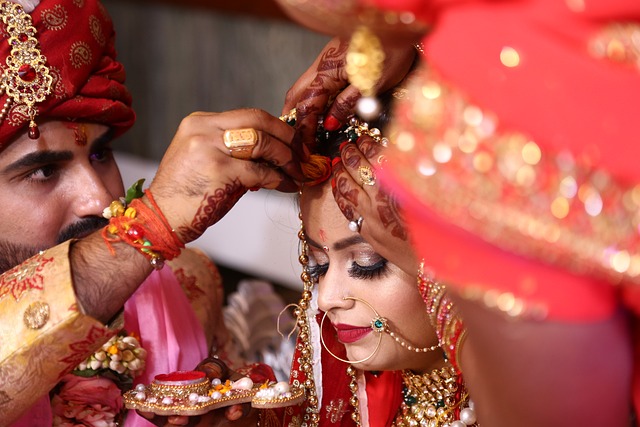Saptpadi – Marriage is solemnized, becomes complete and binding when seventh step is taken – Interesting facts unfolded in SC Order –Sections 7 and 8 of Hindu Marriage Act –
Transfer Petition (Civil) No.2043 of 2023 of Dolly Rani Vs. Manish Kumar Chanchal
The petitioner – wife and the respondent – husband are trained commercial pilots. They were engaged on 7.3.2021 and claimed to have solemnized their marriage on 7.7.2021. They had obtained marriage certificate from Jankalyan Samiti and Registration Certificate of Marriage under the Uttar Pradesh Marriage Registration Rules, 2017.
The marriage ceremony as per Hindu rites and customs was to be performed on 25.10.2022.
In the meanwhile, the differences started between the husband and wife. On 17.11.2022, the petitioner – wife filed FIR for offences under IPC and Dowry Prohibition Act, 1961, against the respondent – husband and his family members.
On 13.3.2023, the respondent – husband filed divorce petition at Muzzafarpur, Bihar.
The petitioner – wife filed the petition in the Supreme Court for transfer of divorce petition to Ranchi Family Court.
Moreover, it was contended that since there was no “marriage” between the parties, the divorce decree could not be granted. The respondent also submitted that there was no marriage.
In view of this, parties have filed application under Article 142 of the Constitution of India for declaration that the marriage of 7.7.2021 was not valid in the eye of law and to declare the marriage certificate as null and void.
HELD that the marriage certificate states that the marriage has been solemnized according to Hindu Vedic rites and customs. Such a certificate, in the absence of performance of such rites and customs is not valid proof of marriage. The registration facilitates proof of marriage in a disputed case but If there is no marriage as per section 7, the registration would not confer legitimacy to the marriage. The certificate would not confirm that the parties have “solemnized” a Hindu marriage.
We note that parents of young couples agree for registration of a marriage in order to apply for Visa for emigration to foreign countries where either of the parties may be working “in order to save time” and pending formalizing a marriage ceremony. Such practices have to be deprecated.
Therefore, we urge young men and women to think deeply about the institution of marriage even before they enter upon it and as to how sacred the said institution is, in Indian society. A marriage is not an event for “song and dance” and “wining and dining” or an occasion to demand and exchange dowry and gifts by undue pressure leading to possible initiation of criminal proceedings thereafter.
A marriage is not a commercial transaction. It is a solemn foundational event celebrated so as to establish a relationship between a man and a woman who acquire the status of a husband and wife for an evolving family in future which is a basic unit of Indian society.
Customary ceremonies, with all its attendant geographical and cultural variations is said to purify and transform the spiritual being of an individual.
It follows that the critical conditions for the solemnizing of a Hindu marriage should be assiduously, strictly, and religiously followed. This is for the reason that the genesis of a sacred process cannot be a trivial affair.
The sincere conduct of and participation in the customary rites and ceremonies under Section 7 of the Hindu Marriage Act, 1955 ought to be ensured by all married couples and priests who preside over the ceremony.




